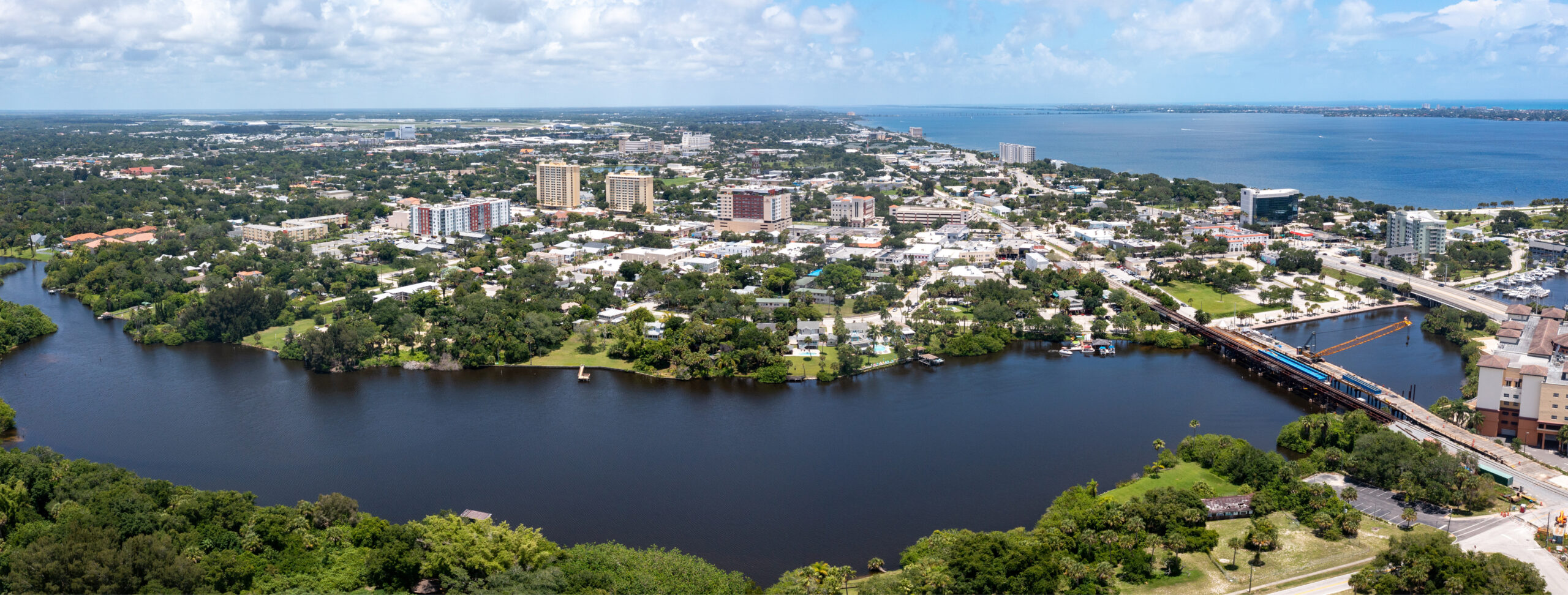In Florida, arrest warrants are legal orders issued by a judge or magistrate that authorize the police to arrest an individual. Arrest warrants play a significant role in the criminal justice process, and understanding their implications is important for anyone concerned about their freedom.
Melbourne Arrest Warrant Attorney
Arrest Warrants are serious business – outstanding warrants can result in complications in your employment, home life, and yes, arrests. Dealing with an arrest warrant can be complicated – law enforcement officers rarely care what you have to say prior to warrant execution.
An experienced criminal defense attorney acts as a liaison between you and law enforcement. Mark Germain has decades of experience representing clients with outstanding arrest warrants.
If you have been charged with a criminal offense in Melbourne, Florida, then you need to contact Germain Legal at (321) 775-3559.
Our office is located in Melbourne, Florida and we proudly serve the surrounding communities of Palm Bay, Titusville, Rockledge, Merritt Island, Cocoa, and Satellite Beach in Brevard County, Vero Beach and Sebastian in Indian River County, Deltona and Dayton Beach in Volusia County, and Kissimmee and Poinciana in Osceola County.
- Types of Arrests
- The Process of Obtaining an Arrest Warrant
- What Happens After an Arrest
- Rights of the Arrested Individual
- Consequences of Ignoring an Arrest Warrant
- How a Criminal Defense Attorney Can Protect You
- Additional Resources
- Hire an Arrest Warrant Lawyer in Brevard County Florida
Types of Arrests
Arrest Based on Warrant – Florida Statutes Section 901.02
An arrest warrant is issued when law enforcement provides sufficient evidence that establishes probable cause for arrest. The warrant must be in writing, specify the nature of the offense, and command that the person be arrested and brought before a judge. It must also include the name or a description of the person to be arrested, the date and county of issuance, and be signed by the judge.
Arrest Without a Warrant
A police officer in Florida can arrest someone without a warrant under certain conditions. These include when a person breaks the law in the officer’s view, when the officer believes a serious crime has been or is being committed, or when the officer has been informed by another officer that an arrest is needed. Arrests without a warrant are also allowed for violations like domestic violence, child abuse, and certain traffic offenses. Additionally, officers can arrest someone if they have probable cause for various specific offenses such as battery, criminal mischief, or trespassing in secure areas like airports.
Citizen’s Arrest in Florida
A citizen’s arrest in Florida allows ordinary people to temporarily detain someone they believe has committed a crime until law enforcement arrives. This action must be based on reasonable belief that the person has committed a crime. For misdemeanors like petty theft or disorderly conduct, the situation must be handled carefully using only minimal force to prevent harm or escape. For felonies such as armed robbery or assault, citizens can take action if they directly witness the crime. If the arrest is proven illegal, it could significantly impact the prosecution’s case, possibly leading to a dismissal or reduction of charges.
Other Warrants
Capias Warrants – Florida Rule of Criminal Procedure 3.730
These are issued under Florida Rule of Criminal Procedure 3.730, typically when a defendant is not in custody and the court deems it necessary to bring them before the court for adjudication of guilt or sentencing. The court may direct the clerk to issue a capias immediately or when directed by the prosecuting attorney.
Bench Warrants – Florida Statutes Section 901.02
This is issued by a judge when a person fails to comply with a court order, such as not appearing for a scheduled court date. These warrants authorize law enforcement to take the individual into custody to help ensure they appear before the court.
Search Warrants – Florida Statutes Section 933
A search warrant is a legal order issued by a judge that allows law enforcement officers to search a specific location, vehicle, or person for evidence related to a crime. This warrant is granted based on sworn statements or evidence that shows probable cause. However, search warrants are not always required. Exceptions include situations where consent is given, items are in plain view, there is an immediate threat to safety, or when an arrest is made and the search is related to that arrest. Misuse of a search warrant or exceeding its authority can result in criminal penalties for the officers involved.
Criminal Offenses
Failure to Appear – Florida Statutes Section 843.15
This offense occurs when a person who has been released on bail intentionally does not show up in court as required. If the person was released in connection with a felony charge or while waiting for sentencing or review after a conviction, it is classified as a third-degree felony. If the person was released on a misdemeanor charge, the offense is classified as a first-degree misdemeanor.
Harboring, Concealing, Aiding Escaped Prisoners – Florida Statutes Section 944.46
Under Florida Statutes Section 944.46, harboring, concealing, maintaining, or assisting an escaped prisoner from any state correctional institution knowing that the individual is an escaped prisoner constitutes a third-degree felony.
The Process of Obtaining an Arrest Warrant
The process of obtaining an arrest warrant in Florida involves several key steps, beginning with the collection of evidence by law enforcement. Officers gather evidence through investigations, which might include witness statements, physical evidence, or other relevant information. Once they have sufficient evidence, the next step is presenting this information to a judge.
To secure an arrest warrant, law enforcement must submit a sworn affidavit to a judge according to Florida Rule of Criminal Procedure 3.121. This affidavit must detail the evidence and reasons why the officers believe the person named in the affidavit has committed a crime. The affidavit must establish probable cause, meaning there is a reasonable basis to believe that the individual committed the offense.
The judge reviews the affidavit to determine whether the evidence presented meets the probable cause standard. If the judge finds that probable cause exists, they will issue an arrest warrant. The warrant must be in writing, specify the nature of the offense, and command the arrest of the individual named. It must also include the judge’s signature, the date, and the county where it was issued.
In some cases, a warrant may be issued following a grand jury’s determination that there is enough evidence to charge an individual with a crime. This process is generally used in more serious cases, such as felonies.
Warrants can be issued without prior notice to the individual if authorities believe the person may flee or take other actions to avoid arrest. Once issued, law enforcement can arrest the person at any time and place.
What Happens After an Arrest
Once an individual is arrested on an arrest warrant in Florida, a series of legal steps follow. Initially, the person is taken into custody by law enforcement and transported to a local jail or detention center. Upon arrival, the arrested person undergoes a booking process, which involves recording their personal information, taking fingerprints, and photographing them.
Following booking, the individual will be held in jail until their first court appearance, usually within 24 hours of the arrest. During this first appearance, the arrested person is informed of the charges against them, and the judge determines whether probable cause exists to justify the arrest. The judge also considers setting bail, allowing the person to be released while awaiting further proceedings.
If bail is granted, the individual can be released by posting the required amount or using a bail bondsman. Bail ensures the person’s return for future court dates. If bail cannot be posted, the individual remains in custody until trial or until they meet the bail conditions.
The next steps include either negotiating a plea deal or proceeding to trial. In some cases, charges may be dismissed if evidence is insufficient or if the arrest was improper. However, if the case moves forward, the person must attend several court hearings, including a pretrial conference and eventually the trial itself.
Rights of the Arrested Individual
In Florida, individuals arrested under an arrest warrant are entitled to specific rights protected by state and federal laws. These rights ensure fair treatment and that legal procedures are followed correctly.
One of the most fundamental rights is the right to remain silent. After being arrested, an individual is not required to answer questions from law enforcement, and anything they say can be used against them in court. It is often advised to exercise this right until speaking with a legal representative.
Another critical right is the right to a lawyer. If the individual cannot afford a lawyer, the court must appoint one to represent them. Legal representation is important for going through the legal process, understanding the charges, and building a defense.
The right to be informed of the charges is also protected. During the first court appearance, the judge must clearly state the charges the individual is facing. This allows the person to understand what they are accused of and prepare an appropriate defense.
Additionally, the arrested individual has the right to a fair and speedy trial. This means the person cannot be held in jail for an unreasonable time without going to trial. The right to a speedy trial is designed to prevent prolonged detention and ensure the case is resolved promptly.
Consequences of Ignoring an Arrest Warrant
Ignoring an arrest warrant does not make it go away; instead, it can worsen the situation. Ignoring a bench warrant, typically issued for failing to appear in court, can result in additional charges. This could lead to harsher penalties such as higher fines, longer jail time, or both. Furthermore, failing to appear in court can result in the loss of certain rights, including the ability to post bail in the future.
Ignoring an arrest warrant can also create complications in other areas of life, such as employment opportunities. Many employers conduct background checks and may refuse to hire someone with an outstanding warrant. It can also affect the individual’s ability to obtain loans, housing, and other essential services.
In some cases, law enforcement may actively search for individuals with outstanding warrants, leading to an arrest at an inconvenient or embarrassing time. The longer the warrant is ignored, the more aggressively law enforcement may pursue the individual.
How a Criminal Defense Attorney Can Protect You
Understanding Your Arrest Warrant
An experienced criminal defense attorney can explain the nature of the warrant issued against you, whether it’s an arrest warrant, a capias warrant, or a bench warrant. Knowing the specifics, such as whether the warrant was issued for failing to appear in court or for being suspected of committing a crime, is critical in determining your next steps.
Your attorney will review the warrant, including any accompanying evidence, to ensure it was legally obtained. If the arrest warrant is based on weak evidence or improper procedures, your attorney can challenge its validity in court. This may result in the warrant being quashed or charges being reduced.
Negotiating on Your Behalf
In many cases, a criminal defense attorney can help you avoid the embarrassment and potential danger of being arrested by negotiating with the court or law enforcement. For example, if there is an outstanding warrant for your arrest, your attorney might be able to arrange for you to voluntarily turn yourself in at a scheduled time. This can help you avoid a sudden public arrest and may reflect positively on your willingness to cooperate.
In some cases, your attorney might even be able to resolve the issue without you needing to be arrested. This could involve negotiating with the court to pay fines or fulfill other requirements, which is more common in cases involving bench warrants or capias for failure to appear in court.
Defending Your Rights
Once you’ve been arrested, a criminal defense attorney becomes essential in protecting your rights. After an arrest, you may be held in custody, where you will go through a booking process and eventually have your first court appearance. At this appearance, a judge will inform you of the charges against you and decide whether to set bail.
Your attorney will advocate for your release on bail and work to get the bail amount as low as possible. They will also begin building a defense by reviewing evidence, questioning the validity of the arrest warrant, and preparing for the possibility of a trial.
Addressing Potential Outcomes
If you’re facing an arrest warrant in Florida, the consequences can vary depending on the nature of the charges. In some situations, your attorney might be able to negotiate a plea deal to reduce the charges or penalties. In other cases, they may fight to have the charges dismissed entirely if the warrant was issued improperly or if there’s insufficient evidence to support the charges. In any case, a criminal defense attorney will guide you through the entire process, ensuring you make informed decisions and have the best possible defense strategy in place.
Avoiding Long-Term Consequences
Ignoring an arrest warrant can lead to serious long-term consequences, such as additional charges for failure to appear, harsher penalties, and complications in your personal and professional life. An experienced criminal defense attorney can help you address the warrant proactively, reducing the likelihood of more severe outcomes like increased jail time, higher fines, or damage to your reputation.
Additional Resources
Florida Crime Information Center – This resource allows users to search for wanted persons in Florida based on various criteria like name, race, and date of birth. The database is updated every 24 hours and includes information from law enforcement agencies across the state.
Florida Statutes Chapter 901 – This is Florida law on arrests and temporary detentions in the state. It covers the procedures for issuing and executing warrants, making arrests without a warrant, and the rights of individuals who have been arrested.
Hire an Arrest Warrant Lawyer in Brevard County Florida
If you have been issued an arrest warrant, contact our Melbourne criminal defense attorney who focuses on defending those accused of crimes in Brevard County.
Contact Germain Legal by calling (321) 775-3559 or submit information pertaining to your specific situation in our online form.
Germain Legal represents clients issued arrest warrants in Brevard County, Indian River County, Volusia County, Osceola County, including the cities of Melbourne, Palm Bay, Titusbay, Vero Beach, Gilford, Sebastian, Deltona, Daytona Beach, Port Orange, Kissimmee, and Poinciana.



